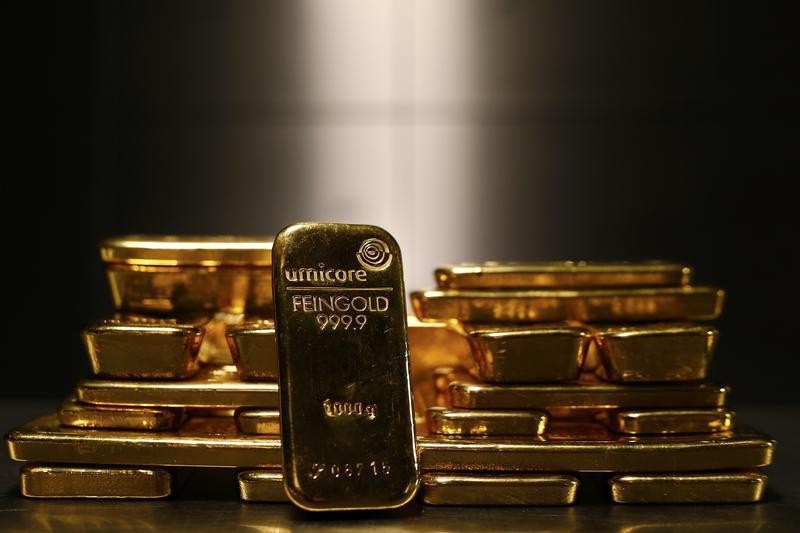By Barani Krishnan
Investing.com – It seems to be a Monday of surprises — first an unexpected OPEC+ ; then weaker-than-anticipated and, now, a quicker-than-thought return to $2,000 for gold.
on New York’s Comex settled the first trading day for April at $2,000.40 an ounce, up $14.20, or 0.8%, after a session high of $2,008.
The , more closely followed than futures by some traders, fell short of $2,000 mark though, peaking at just above $1,990. “Hereon, sustainability above $1985 will strengthen the bullish momentum targeting $2,010 followed by $2,020-$2,040,” Sunil Kumar Dixit, chief technical strategist at SKCharting.com, said, referring to spot gold.
It was an ebullient moment for believers in the yellow metal after two back-to-back quarters of 9% gains as the U.S. banking crisis in March drove more investors toward the safe haven.
While many are betting that gold will soar above $2,100 at some point in the near future to set all-time highs, Monday’s return to the $2,000 had been quicker than thought.
Poetically, gold’s $2,000 moment matched the euphoria of oil bulls basking in a quicker-than-anticipated return to $80 pricing for black gold — the colloquial name for oil.
“Gold is rising after OPEC+ delivered another shock to the global financial outlook,” said Ed Moya, analyst at online trading platform OANDA.
Moya noted that for a third week in a row, gold was starting the trading week with a major development, with the previous two dominated by banking failures at California-based Silicon Valley and Zurich’s Credit Suisse, before this week’s production cut by OPEC+ that raised new worries about inflation.
Beyond Monday’s oil price spike, some traders and analysts were already looking at what the Federal Reserve would do in terms of rate hikes to counter new inflation pressure almost certain from the now OPEC-inflated oil price.
Investing.com has assigned a 60% probability of the Fed raising another quarter point in rates in May — up from 40% the previous week — to bring them to a peak of 5.25%.
Until the OPEC+ hike, some had actually been leaning towards a Fed rate cut by the year-end to lift the economy despite the central bank saying no loosening was on its horizon till it got now at 6% a year returns to 2% or so.
Now, they can forget that if oil starts creeping higher toward $90 per barrel in coming months.
“Higher oil prices will prove to be troubling for central bankers as they try to navigate the end of their respective tightening cycles,” Moya said.
“The economy is recession bound as the consumer is clearly weakening, lending is about to get ugly, energy cost uncertainty will remain elevated for a while, and monetary policy is finally restrictive and about to break parts of the economy,” he added.
Read the full article here



